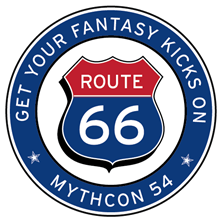Abstract
Ursula K. Le Guin’s influential Earthsea novels are an integral part of the fantasy literature tradition, and the way Le Guin constructed both her narrative and the accompanying storyworld continues to inspire reader reactions and scholarly attention. This article seeks to directly link the Taoist philosophy to Le Guin’s worldbuilding and argues that Taoism is foundational for Earthsea and its construction. Multiple aspects of the storyworld are affected by Taoism including dialogue, character motivations, major quests, and moral systems. Through examples from primarily A Wizard of Earthsea, the article showcases how Taoism is meaningful in Earthsea and the strong degree to which Le Guin used Taoism as a building block in the same manner that J. R. R. Tolkien and C. S. Lewis employed Christianity in their work. The main character, Ged, provides the most material for examining Taoist influence, and his journey – which is reminiscent of a classic Bildungsroman – produces several crucial moments that highlight central areas Taoism is concerned with, including Balance, Wholeness, and Equilibrium.
Creative Commons License

This work is licensed under a Creative Commons Attribution-NonCommercial-No Derivative Works 4.0 International License.
Copyright held by Artist


